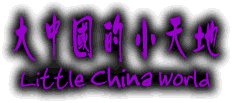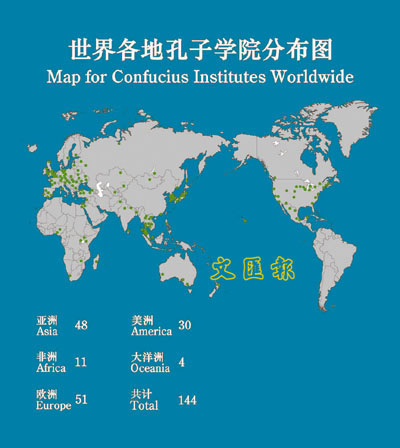外国人学汉语最难点 7 reasons learning Chinese is difficult
 In some foreigners eyes', the learning of Chinese has become the most difficult thing for them. The tones of Chinese and Chinese characters all seem to be a difficulty. Then what has made the learning of Chinese difficult?
In some foreigners eyes', the learning of Chinese has become the most difficult thing for them. The tones of Chinese and Chinese characters all seem to be a difficulty. Then what has made the learning of Chinese difficult?Top 1 Because the writing system is ridiculous
The beauty of the characters is indisputable, but these ideograms weren't too practical for daily use. It is absolutely true that Chinese is hard because of the huge number of characters one has to learn. And Chinese is not very phonetic, which means that often you just completely forget how to write a character, if there is no obvious semantic clue in the radical, and no helpful phonetic component somewhere in the character.
原因一:书写方法简直是天方夜谭
汉字的美丽,无可争议。不过这种表意文字在日常生活中并不是很实用。汉语之所以难学,就是因为要学的汉字实在太多,这也是绝对的事实。还有,汉字的拼写方式也不是很规则,也就是说,如果从一个汉字的组合方式中得不到任何显而易见的语义提示,或者其中没有包含什么有用的偏旁部首,就会把一个汉字的写法忘得干干净净。
Top 2 Because the language doesn't have the common sense to use an alphabet
The English is so easy because of the skills needed to master the writing system are 26 letters and they are written from left to right ,horizontally, across the page, with spaces to indicate word boundaries. In comparison, Chinese has nothing that corresponds to an alphabet, though there are recurring components that make up the characters. It can be said that the components of Chinese characters are arrayed in two dimensions, rather than in the neat one-dimensional rows of alphabetic writing.
原因二:汉语是不能用通俗意义上的字母排列来表意的
英语之所以好学,就是因为掌握英语书写方法所需要的技能也就是26个字母而已,而且只要沿水平方向、从左到右、从页面的一边写到另一边就可以了。相比之下,尽管中文也有组成汉字的那些共用的偏旁部首,却没有相应的字母。可以说,组成汉字的偏旁部首是按照两个方向来排列的,而不象字母那样只按一个方向排列,看起来很整洁。
Top 3 Because even looking up a word in the dictionary is complicated
One of the most unreasonably difficult things about learning Chinese is that merely learning how to look up a word in the dictionary is about the equivalent of an entire semester of secretarial school. Chinese must also be one of the most dictionary-intensive languages on earth for there are various dictionaries.
原因三:即使在字典中查汉字也是非常复杂
学习汉语最莫名其妙的困难之一,就是即使仅仅学会怎么查字典,也要耗费一个秘书学校整个学期的学习时间。汉语一定是地球上最精于运用字典的语言了,因为各种各样的字典实在太多。
Top 4 Because there's classical Chinese (wenyanwen)
Whereas modern Mandarin is merely perversely hard, classical Chinese is deliberately impossible. Classical Chinese really consists of several centuries of esoteric anecdotes and in-jokes written in a kind of terse, miserly code for dissemination among a small, elite group of intellectually-inbred bookworms who already knew the whole literature backwards and forwards.
原因四:中文里面还有古汉语(文言文)
如果说,现代汉语再难也不过是让你无所适从而已,那么古汉语就简直是故意让人永远也别学似的。古汉语确实含有数千年来积累起来的各种宫廷秘闻,用词简洁扼要,简直象某种密码,只适合那些天生的知识精英,他们对文学的一切了然于心。
Top 5 Because there are too many romanization methods and they all suck
Perhaps that's too harsh, but it is true that there are too many of them, and most of them were designed either by committee or by linguists, or -- even worse -- by a committee of linguists. It is, of course, a very tricky task to devise a romanization method; some are better than others, but all involve plenty of counter-intuitive spellings.
原因五:(罗马式)拼音方案太多且都让人精疲力尽
也许听起来有些刺耳,但汉语的拼音方案确实太多,而大多数的拼音方案不是什么文字委员会提倡的,就是语言学家提出来的,更糟糕的是由那些语言学家组成的文字委员会提出来的。当然,要发明一种罗马式拼音方案确是一项技巧性很强的高难度工程,尽管有些方案比其他方案好,但任何方案都含有些无法凭直觉读的拼写。
Top 6 Because tonal languages are weird
It's one of the most common complaints about learning Chinese, and it's also one of the aspects of the language that westerners are notoriously bad at. As non-native speakers, you must memorize along with the vowels and consonants. The real difficulty comes in when you start to really use Chinese to express yourself. Intonation and stress habits are incredibly ingrained and second-nature.
原因六:汉语语调稀奇古怪
在学汉语过程中,最容易听到的抱怨正是这一点,西方人对汉语最害怕的也是这一点,简直是妇孺皆知。如果不是从小就会说汉语,那你就等着不停地去死记那些元音辅音吧。真正的难题还要等你真的要用汉语进行表达的时候才会出现。汉语的那些语调和强调习惯简直是与生俱来的,根深蒂固的,简直不可思议。
Top 7 Because there is culture difference
One of the main reasons Chinese is so difficult for westerners is that the culture between the East and the West has been isolated for so long. China has had extensive contact with the West in the last few decades, but there is still a vast sea of knowledge and ideas that is not shared by both cultures. When westerners and Chinese get together, there is often not just a language barrier, but an immense cultural barrier as well.
原因七:存在文化差异
东方、西方相互之间文化分隔的时间太长,这也是汉语对于西方人来说为何那么难学的主要原因。尽管在过去几十年里中国和西方之间有了广泛的接触,然而,中国人的知识和思 浩瀚如海,西方人却无缘享用。即使有朝一日西方人 和中国人融合成一体,其障碍往往也并非只是语言一个方面而已,最大的障碍是巨大的文化差异。
标签: study-chinese

 国际在线报道(记者 任杰):随着汉语学习热潮的不断升温,目前海外通过不同途径学习汉语的人数已突破4000万人。对于那些渴望学习汉语、认识中国的外国朋友来说,除去远赴中国留学深造外,还有一种更为轻松便捷的途径——到当地大学或社区里的孔子学院进行学习。
国际在线报道(记者 任杰):随着汉语学习热潮的不断升温,目前海外通过不同途径学习汉语的人数已突破4000万人。对于那些渴望学习汉语、认识中国的外国朋友来说,除去远赴中国留学深造外,还有一种更为轻松便捷的途径——到当地大学或社区里的孔子学院进行学习。


